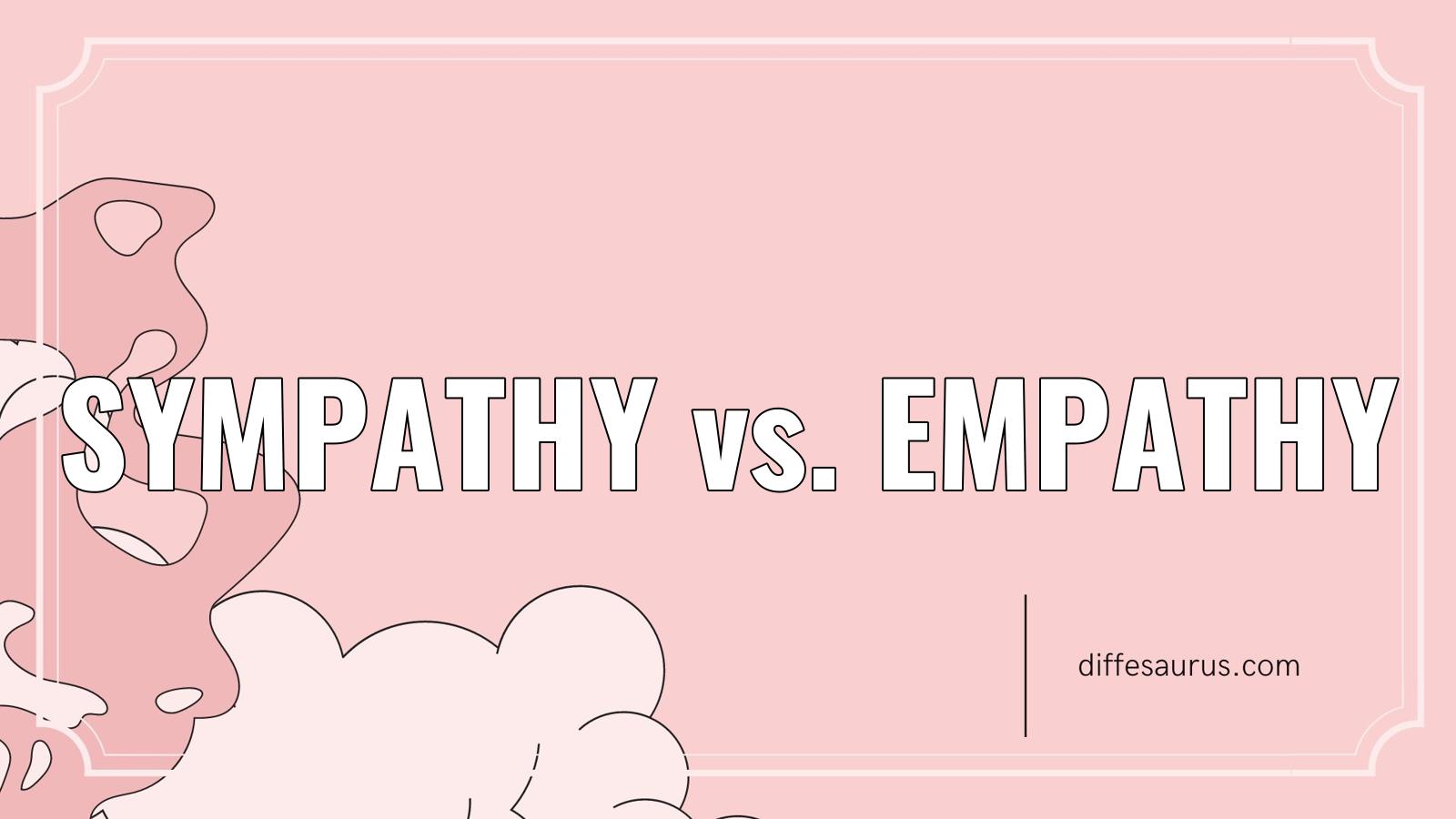The most common sympathy traps, as well as the key difference of empathy and sympathy, can be learned.
A lot of judgement is required when Sympathy is involved. Understanding from your own point of view is what sympathy is all about. You have to put yourself in the other person’s shoes in order to understand why they have certain feelings. We can better understand and provide healthier options if we become aware of the root cause of why someone feels that way.
Is sympathy ever better than empathy?
The ability to empathise is stronger than the ability to sympathize. They feel compassion for their loss, but it goes far beyond that. It is possible to identify with someone else’s feelings and put yourself in their shoes. You can get a sense of what another person’s experience is like if you put yourself in their shoes and look at the situation through their eyes. Sharing their feelings is more important than just feeling bad for the other person.
What is the difference between empathy sympathy and empathy?
A lot of judgement is required when Sympathy is involved. You have to put yourself in the other person’s shoes in order to understand why they have certain feelings. We can better understand and provide healthier options if we become aware of the root cause of why someone feels that way.
What are 5 examples of empathy?
Being happy for someone else, imagining yourself in a struggling person’s situation, and feeling sad when they are sad are some of the ways in which you can empathise.
What is the best example of sympathy?
Supporting someone who is grieving is a great example of empathising, but it isn’t always the case. It can feel like you’re sympathetic to someone in grief when you tell them how sorry you are.

Can someone be sympathetic and not empathetic?
They’re similar, but sympathetic andpathetic are not. Being sympathetic means showing concern for someone when something bad happens to them, while being easy to empathise with.
Is it good to be sympathetic at work?
In the workplace and business as a whole, more sympathetic and sympathetic responses are welcome. Products and services can be created in ways that add more value to customers’ lives by being more emotionally intelligent.
What are 5 examples of empathy?
You listen to what other people are saying. When someone is sad, anxious, angry, or just off, you can usually tell. You end up feeling how others are feeling when you absorb other people’s emotions. How other people are feeling is something you try to figure out. People are coming to you for help. People who are not genuine are hard to get along with. Emotional situations can make you feel drained or overwhelmed. People often ask for advice or share their problems with you.
What is the difference between empathy and sympathy Brene Brown?
In this video, you can see that sympathy and empathy are very different, and that they are often grouped together. It is a skill that can bring people together and make them feel included, while it can lead to more isolation and disconnection, if sympathy is not used properly. sympathy is usually coming from a good place, that’s why it’s an unfortunate outcome.

Is it better to be sympathetic or empathetic?
Maintaining a healthy personal and professional life is dependent on emotional intelligence. Empathetic and sympathy are two components of emotional intelligence. People often use ’empathy’ and ‘sympathy’ interchangeably, but that’s not true. They offer support to people who need it and are good qualities to have.
How empathy is different from sympathy?
A lot of judgement is required when Sympathy is involved. Understanding from your own point of view is what sympathy is all about. You have to put yourself in the other person’s shoes in order to understand why they have certain feelings. We can better understand and provide healthier options if we become aware of the root cause of why someone feels that way.
Is it better to have empathy or sympathy?
There are seven key differences between empathizing and sympathy, according to a social media expert. Giving advice or being told what to do is necessary for sympathy. Most of the time, people just want to be heard, so empathising is more effective. I know how you feel, that’s what Sympathy states. I feel how you feel, that’s what empathy states. Being more aware of the other person’s feelings is what having empathy is all about in this case.
Which is better empathy or compassion?
With compassion, you can ask yourself what you can do to help.
Which is stronger empathy or sympathy?
The ability to empathise is stronger than the ability to sympathize. They feel compassion for their loss, but it goes far beyond that. It is possible to identify with someone else’s feelings and put yourself in their shoes. You can get a sense of what another person’s experience is like if you put yourself in their shoes and look at the situation through their eyes. Sharing their feelings is more important than just feeling bad for the other person.
Can empathy turn into apathy?
Sharing suffering can be difficult at times, according to Singer and her colleague. It can become a barrier to action if people feel emotional distress. Distress can lead to apathy, withdrawal and feelings of helplessness, which can be bad for your health. Care-givers, such as those working in mental health support or hospital doctors and nurses, have become more concerned with this sense of empathy fatigue during the Pandemic.
What is sympathy and examples?
There are feelings of compassion, sorrow, sadness, or pity for someone who is facing difficult circumstances. Something that happens to other people causes an emotion to be experienced. You sympathize with that person when you feel sorry for them.



